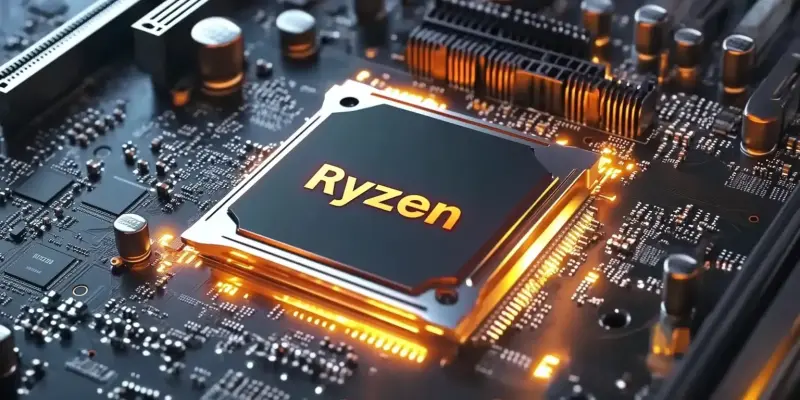The recent wave of failures involving AMD’s Ryzen 7 9800X3D CPUs has sparked considerable concern among tech enthusiasts, especially as these problems appear to be linked with ASRock motherboards. Reports of these CPUs arriving dead on arrival (DOA) or failing after a short period of use are steadily increasing, which, combined with the high demand for these processors, is causing considerable frustration among users. The situation is particularly troubling given that over forty units of Ryzen 7 9800X3D have been reported as defective so far, with no clear explanation yet available. It is noteworthy that the issue may not only be restricted to the X3D variant; a few non-X3D processors have also encountered similar failures, suggesting a potential inherent flaw in AMD’s Zen 5 CPU platform.
Community Response and Immediate Actions
Reddit has become a central hub for affected users to share their experiences and seek solutions, bringing this issue to broader attention. The repeated instances of failure have prompted ASRock to take action by releasing BIOS version 3.20, which is designed to address the compatibility and operational issues identified with the Ryzen 7 9800X3D CPUs. However, while ASRock is actively working on a solution, AMD itself, despite acknowledging the problem, has yet to issue a formal statement detailing the cause of these failures. AMD’s current approach predominantly involves processing RMA (Return Merchandise Authorization) requests for users who report defective CPUs. Those experiencing these issues are advised to update their BIOS to the latest version available from the motherboard manufacturer, a stopgap measure that may potentially alleviate some problems but leaves many users waiting for a more definitive solution.
Market Impact and The Way Forward
The issues surrounding Ryzen 7 9800X3D CPUs have broader market implications, given the high demand among gamers and tech enthusiasts. Limited availability compounds the situation, leaving consumers who manage to obtain these units grappling with reliability concerns. This highlights the urgent need for swift and effective solutions to prevent more failure reports and to protect consumer trust. The hardware industry, characterized by fierce competition and rapid innovation, frequently encounters such challenges. The current scenario emphasizes the necessity for rigorous quality assurance and proactive customer support to sustain confidence. Looking forward, AMD and partners like ASRock must focus on resolving these issues to meet user expectations for reliability and performance. Promptly addressing this problem could restore faith and underscore the critical role of responsive support in retaining a loyal customer base.
How AMD handles this mishap with the Ryzen 7 9800X3D CPUs will likely set a benchmark for managing similar situations in the future, highlighting the importance of tackling hardware issues quickly and transparently.

